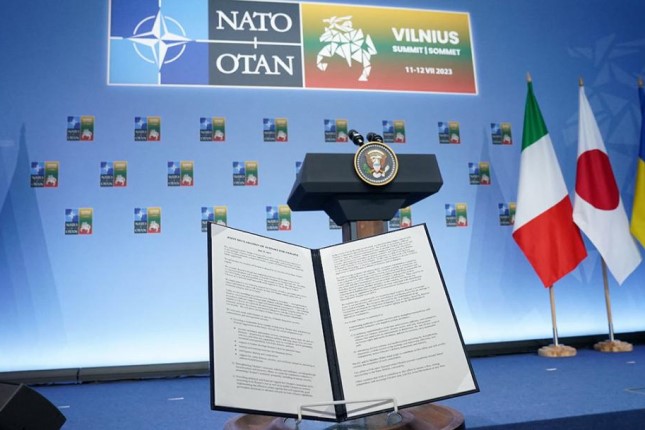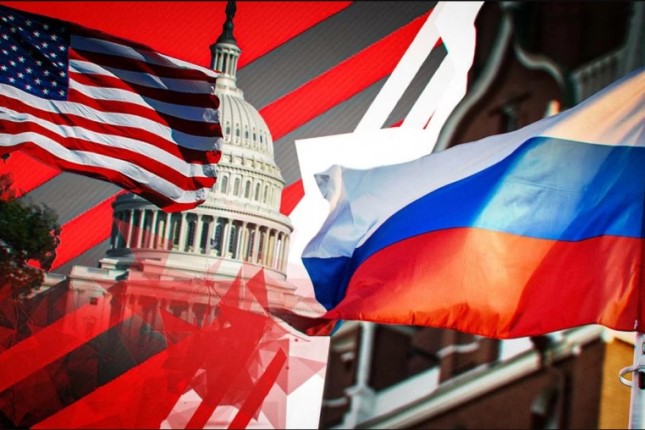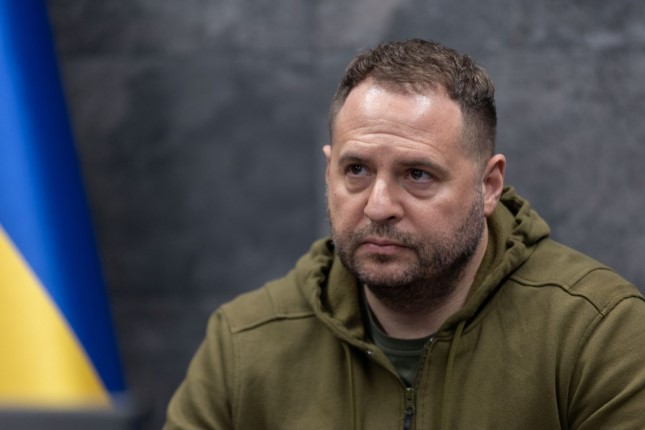There is a lot of talk about Mexican drug cartels in Washington lately.
A group of Republican senators are calling on the White House to use various restrictions and other "weapons" against Mexican authorities to compel President Andres Manuel Lopez Obrador to take real measures against the cartels that are flooding America with fentanyl and other drugs.
It would be no hyperbole to say that the States are in the midst of a full-on fentanyl crisis, with tens of thousands of fentanyl-attributed drugs every year. The narcotic, which can be fatal even in small doses, is primarily produced in Mexico and smuggled across the border.
However, the Senators are concerned that the Mexican head of state "has clearly made the deliberate choice to pursue a permissive and non-confrontational policy toward the cartels, to turn a blind eye toward pervasive corruption in Mexico, and to downgrade counter-narcotics cooperation with the United States," as they wrote in a recent letter to Treasury Secretary Janet Yellen and Secretary of State Antony Blinken.
Blinken has said that the State Department would even consider classifying cartels as terrorist organizations. President Trump had considered the same thing, but did not follow through. In Texas, several cartels are officially classified as terrorists as of last year, but at the same time, White House representatives have said such a designation would have little to no impact.
However, US politicians might be looking to do more than just pressure President Lopez. "The true purpose of the conflict may be to weaken the current regime in Mexico City. Both Republicans and Democrats are interested in this," sources write. The Mexican president is well liked in his own land and seems to be an independent actor – something that does not sit well with the US.
To this end, there seems to be reason to think that the US, in fact, has decided to conduct a special operation against cartels in Mexico. "This is evidenced by columns of armored vehicles on the road, railroad trains with tanks, and flights of combat aircraft in more than half of the states."
In addition to calls to pressure the Mexican president and label cartels as terrorists, Republicans have been lobbying for authorization to send troops into Mexico to handle the cartel problem. Politicians [rightly] argue that the Biden administration has lost control of the southern border.
For example, Reps. Dan Crenshaw (R-Texas) and Mike Waltz (R-Fla.) put forth a bill seeking authorization for the use of military force to "put us at war with the cartels."
The Biden administration is not big on the idea, but Trump has promised overt and covert action against cartels if re-elected. Fentanyl is more lethal than any army, he recently told a Texas audience.
Unsurprisingly, Mexican President Lopez has roundly condemned the idea of American troops trapsing all over the place in his country. And plenty of US politicians and analysts are against it too. "If you thought Iraq was a bad situation, wait until you invade a country on our border," commented one House Republican congressional aide. US military operations in Mexico would only send thousands more rushing for the US border, with a pretty serious reason to claim asylum.
And decades of the war on drugs throughout Latin America have proven fairly unsuccessful. Perhaps the biggest impact has been turning people like Pablo Escobar and El Chapo into mythological heroes.
But, "the worst thing we can do is continue to do nothing," says Rep. Mike Waltz.
While the White House might not be so keen on a military invasion of our southern neighbor, it does have something else up its sleeve. It seems the Biden administration would like the revive a controversial surveillance program from the days of George W. to track down cartel operations and members and their Chinese suppliers.
And perhaps expanded surveillance is really what it's all about?
But the reupping of Foreign Intelligence Surveillance Act's Section 702, which allows intelligence agencies to read email and other electronic communications of foreigners abroad, is also facing bipartisan resistance, as it is widely recognized as a backdoor for the FBI to surveil Americans. Once those foreign emails are collected, the FBI can then sift through them to get information on Americans without a warrant.
The Bide administration is doing everything it can to emphasize the horror of the fentanyl crisis to convince Congress to reauthorize Section 702. It is also needed to better counter terrorism and cyberattacks, Biden's people say. In fact, multiple intelligence agencies have been using the statute against not only fentanyl traffickers, but also the global network of suppliers.
CIA Director Bill Burns stressed: "702 has been crucial in illuminating that network for us and, therefore, enabling us, for example, just in the last few months, to work with Mexican partners to take some very successful actions against the Sinaloa Cartel."
Interestingly, while on the one hand, the White House does not seem interested in labelling cartels as terrorist organizations, on the other hand, to do so would radically strengthen its argument that Section 702 is needed to fight them.
And of course, the cartels are well aware of the government's desire to track their every move, and have been using encrypted and off-the-grid means of communications for years now. According to the 270GB BlueLeaks data dump in 2020, the Sinaloa Cartel was using Encrochat cryptophones from Europe to communicate in-house and with a Canada-based trafficking associate. However, Encrochat was eventually compromised and shut down by a multinational investigation.
Cartels are also known to use satellite phones, which work independently of the traditional power grid and provide anonymity. But at the same time, it seems their use of digital technology has proven to be a double-edged sword, as the US intelligence community has managed to break into some of their encrypted communications that they were previously unable to.
The inability of the US government to legally intercept encrypted communications has long been a thorn in the side of its intelligence community. And as the community taps into cartel networks and communications, it can collect data on other foreign users as well.
This unintended assistance from the Mexican drug cartels is likely playing a key role in the decision-making process around renewing Section 702.
However, despite any value in the fight against terrorism and drug trafficking, the question of how it impacts the privacy rights of American citizens remains a contentious issue.
Both left-leaning privacy advocates and GOP members who are disgusted by the FBI's handling of the Trump investigation seem pretty firm that the surveillance statute cannot be renewed without major amendments to protect the rights of ordinary American citizens.
Given the two-sided resistance to beefed-up surveillance, perhaps the evidence that the US is preparing for some kind of military operation in Mexico should come as no surprise.

































